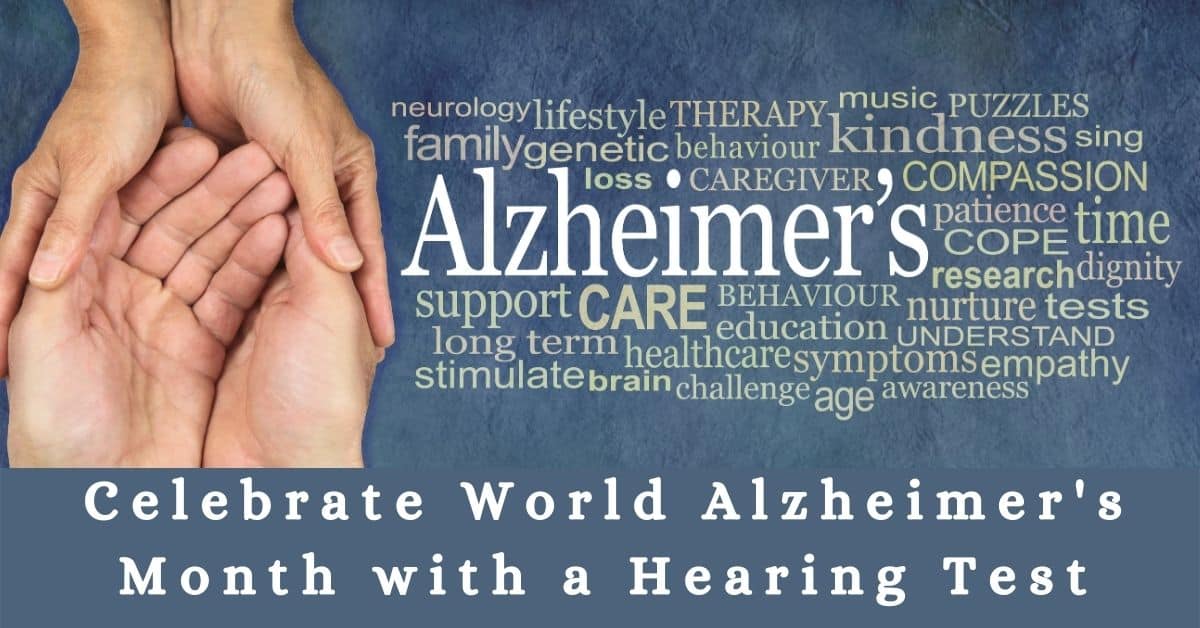If you’ve seen a family member or dear friend suffer from Alzheimer’s disease, then you know how devastating it can be. Alzheimer’s disease is a degenerative brain disease, which attacks and destroys brain cells.
Over time this breaks down a patient’s ability to complete simple tasks like preparing a meal, going for a walk or brushing your teeth. It also degrades memory to the point where patients may not remember the people they’ve spent time with for their entire lives. Alzheimer’s is not a normal process of aging but a disease which can often be exacerbated by lifestyle and health choices.
While there is still no cure for Alzheimer’s disease and other forms of dementia, researchers continue to find ways to slow and prevent the likeness of developing this condition. Every September has been set aside by the Alzheimer’s disease International (ADI) to educate and combat the stigma that surrounds dementia.
Monitor Your Total Health
While researchers still struggle to find a cure for Alzheimer’s, they are constantly uncovering behaviors and health conditions that contribute to the onset of dementia. Because the brain relies on a constant supply of blood flow to remain healthy, cardiovascular health is important to monitor.
Cardiovascular disease can cause strokes and heart attack, which can damage blood vessels in the brain, raising the risk of dementia. To make sure your heart health is at its best, make sure to monitor your blood pressure, exercise regularly, eat a healthy diet, low in saturated fats, avoid excessive alcohol, tobacco use and practice aerobic activity at least for 150 minutes each week.
Mental Health and Dementia
A healthy mind is more likely to stand a chance in the prevention of Alzheimer’s. If you are depressed or self isolated, this can raise your risk of dementia significantly. The more you challenge your brain and continue to learn, the greater the chance you have of maintaining a healthy mind for years to come. Join a group, try a new hobby and constantly read!
Hearing Loss and Dementia
These are all ways to keep your brain engaged. It’s important to remain as social as possible as we age. This can be a challenge for those of us living with undiagnosed hearing loss. Like dementia, hearing loss can start slow and progress to a dangerous level, sometimes without even realizing we have a problem. It is often up to our friends and family to suggest that we may have a hearing problem. When you can not hear the people around you it can be a very frustrating experience. Often people choose to self-isolate, withdraw from social situations and become depressed which can increase the risk of dementia. Not only this, but when we can not hear sounds our brain can become under-stimulated, causing brain shrinkage if not treated in a timely manner. Brain atrophy is often one of the largest symptoms of the onset of Alzheimer’s.
Research Linking Alzheimer’s and Hearing Loss
Due to numerous studies of recent, the link between Alzheimer’s and hearing loss seems clearer than ever. A popular study from Johns Hopkins Univeristy has documented clear connections between hearing loss and cognitive decline using self-reporting surveys in a senior population with both healthy hearing and hearing loss.
The study found that patients that reported mild hearing loss had double the risk of dementia, moderate hearing loss tripled the risk, and severe hearing loss increases the risk of developing dementia five-fold in comparison with those with healthy hearing.
Treating Hearing Loss with Hearing Aids
While having a hearing loss does not mean that you will develop dementia, hearing loss does affect many different areas of your health and well-being.
As hearing loss progresses, it is often certain tones or pitches that degrade first. When you make an appointment to test your hearing, our team will identify these pitches and tune your hearing aids to amplify these lost sounds. This enables people to hear conversations clearly that they previously struggled with.
Staying socially active and engaged is an important part of the battle against Alzheimer’s disease. Why not use September as a call to deal with your hearing loss? The fight against Alzheimer’s begins with you! Contact us today to schedule a hearing test.

